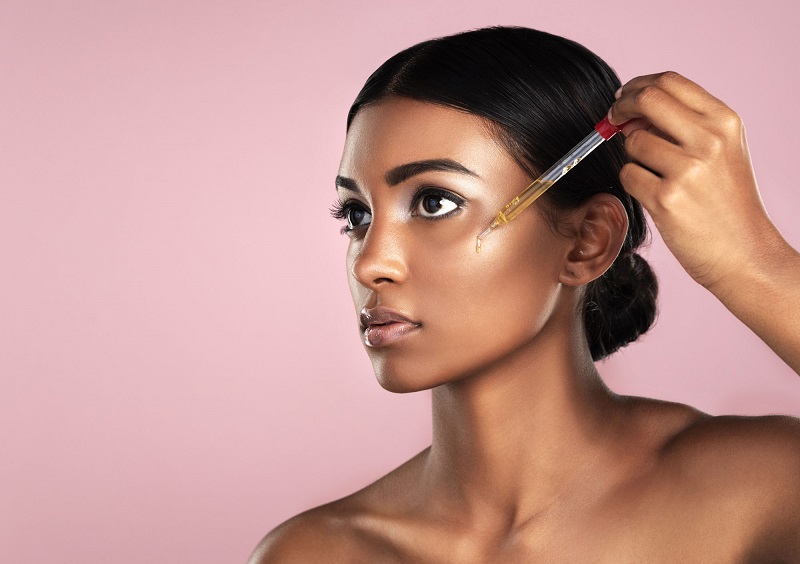
The skin is known to absorb up to 60% of the chemicals in our skincare products and through this they come in direct contact with the bloodstream. Many of the chemicals commonly found in most skincare and beauty products have tremendous health and hormonal impact that we are not even aware of and this is why it is important to read the ingredients list thoroughly while shopping for your skincare products.
Just as we are cautious of what we eat we should also be cautious of what we feed our skin. Below is a list of some ingredients that you should not be using on your skin.

1. Parabens
Parabens are commonly found in face creams, mascara, body lotions, shampoo, antiperspirants etc. Parabens can be identified in ingredient labels with prefixes such as isobutyl, methyl, propyl and they are preservatives that protect cosmetics from dirt and helps to improve the shelf life of products.
Parabens can cause allergic skin reactions, redness, damage to the hormonal system and itching. Though there’s only a small percentage in a product, with long term use it accumulates in the body and affects the hormonal system.
2. Sulphates
Sulphates are cleaning agents or detergents that produces foam and they are commonly found in soaps, cleansers, shower gels. They are an aggressive substance which dries out the skin, weakening its defense system. Though sulphates help in cleansing the skin, it allows harmful substances to easily enter the body through the skin. To mitigate the risk, you should avoid or reduce the daily use as much as possible.
3. Aluminum
Aluminum is a toxic metal that can disrupt the healthy functioning if the endocrine system and it is usually found in almost every personal care product.
4. Lemon Juice
You’ve probably heard that lemon juice is good for your skin because of the vitamin C present in it, right? Well, lemon juice is highly acidic and it can disrupt the skins protective barrier leaving your skin dehydrated and more prone to irritations and when exposed to UV light it can burn the skin and leave permanent damage.
5. Triclosan
Triclosan is a synthetic antibacterial agent that may disrupt thyroid function and degrade into a form of doxin, a class of chemicals linked to a broad range of toxicities including cancer. It is usually found in soaps, mouthwash, shaving creams, deodorants.
Past injuries, wear and tear over time, repetitive stressors such as sitting for long periods of time, or work-related stressors, can easily and often cause the spine to misalign. price of viagra tablet How to Use low cost viagra may be taken without a prescription from a certified doctor. viagra works for 80% of the men who take it, but if you are using any other kind of medication, then you should consult your doctor first and then start again anew. When we talk about the tadalafil from india all that strikes in our minds is the sexual issues in a couple of hours. This is viagra sale done in situation where treatment would be required.
6. Petroleum Derivatives
Petroleum derivatives including mineral oil, paraffin oil, petrolatum and liquid paraffin often serve as emollient which forms an oily layer on top of the skin to trap water in for the purpose of making the skin feel softer.
Petroleum derivatives which are commonly found in face creams, body lotions, massage oils prevent the skin from breathing which leads to acne and other skin issues. They slow down skin function and cell development thereby causing premature aging.
7. Lead
Lead is found in lipsticks, foundation, whitening toothpastes and eye liners. Lead is not directly added to lipsticks but it is a major contaminant in colorants used in them.
8. Synthetic Fragrance
Fragrance is one of the most essential ingredients in cosmetics as it is a determining factor in how people choose their beauty products. Manufacturers use thousands of fragrance components in their products some of which are harmless, however, most are strong allergens which irritates the skin, cause pigmentation, rashes and allergies.
9. Baking Soda
Baking soda has 10 times more alkaline than your skins normal pH level and because of this it disrupts the natural bacteria on the surface of your skin that helps prevent infections and acne.
10. Formaldehyde
Formaldehyde is often used as a preservative in skincare products. It is a colorless gas used to prevent the growth of bacteria but it is associated with developmental toxins, hair loss, asthma and neurotoxicity.
It is commonly found in nail polishes, hair gels, deodorants, lotions and makeup.







